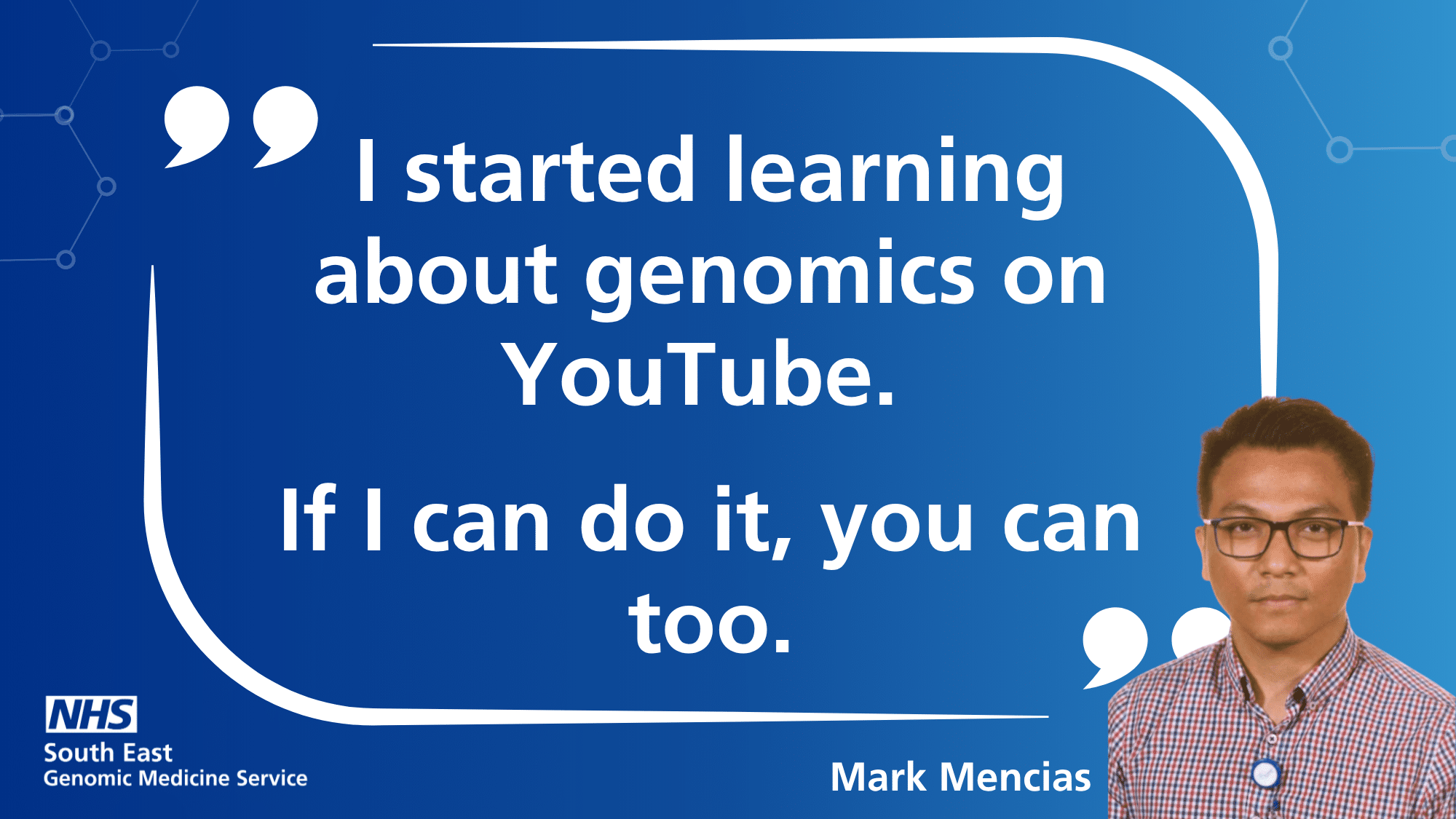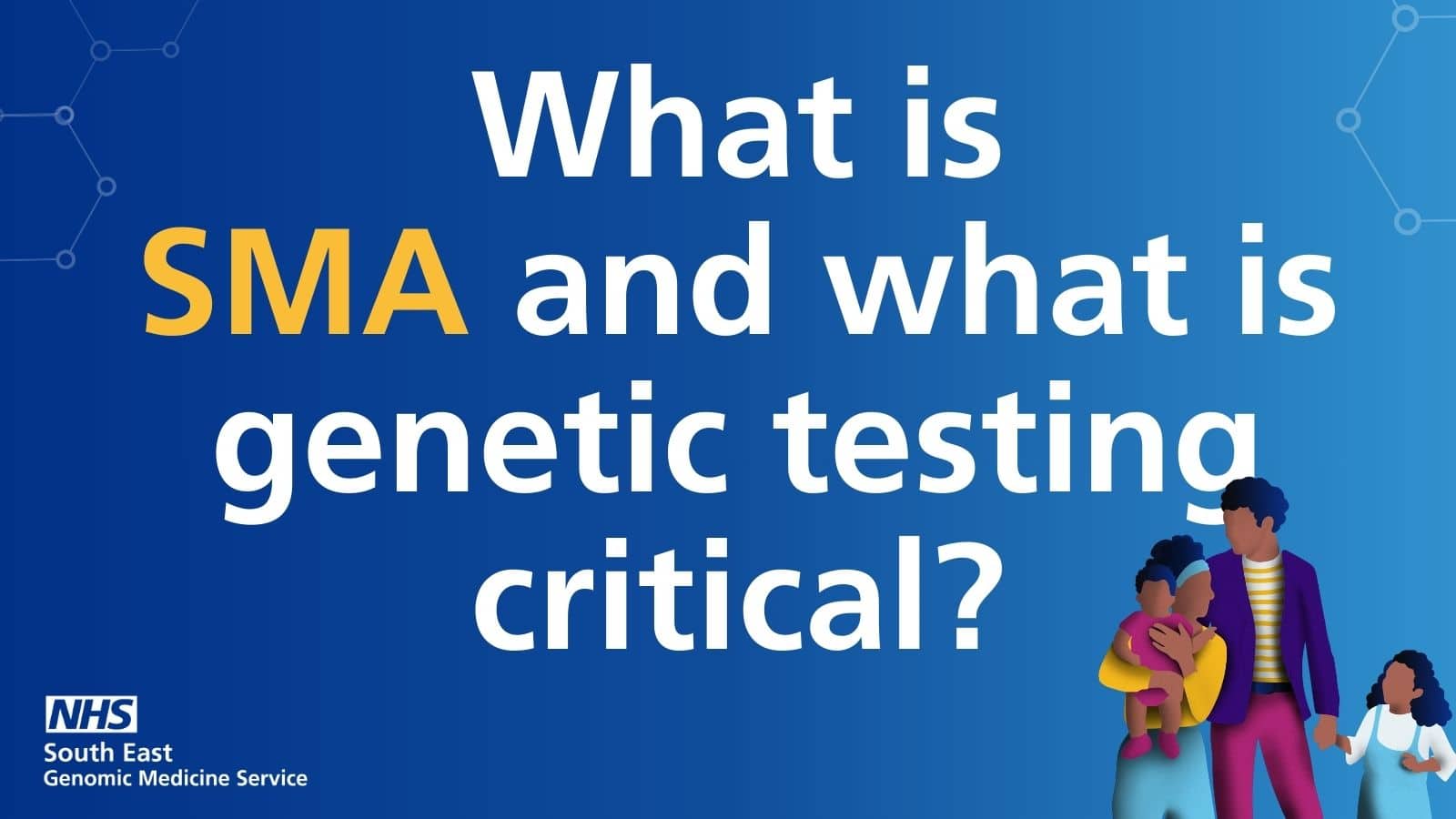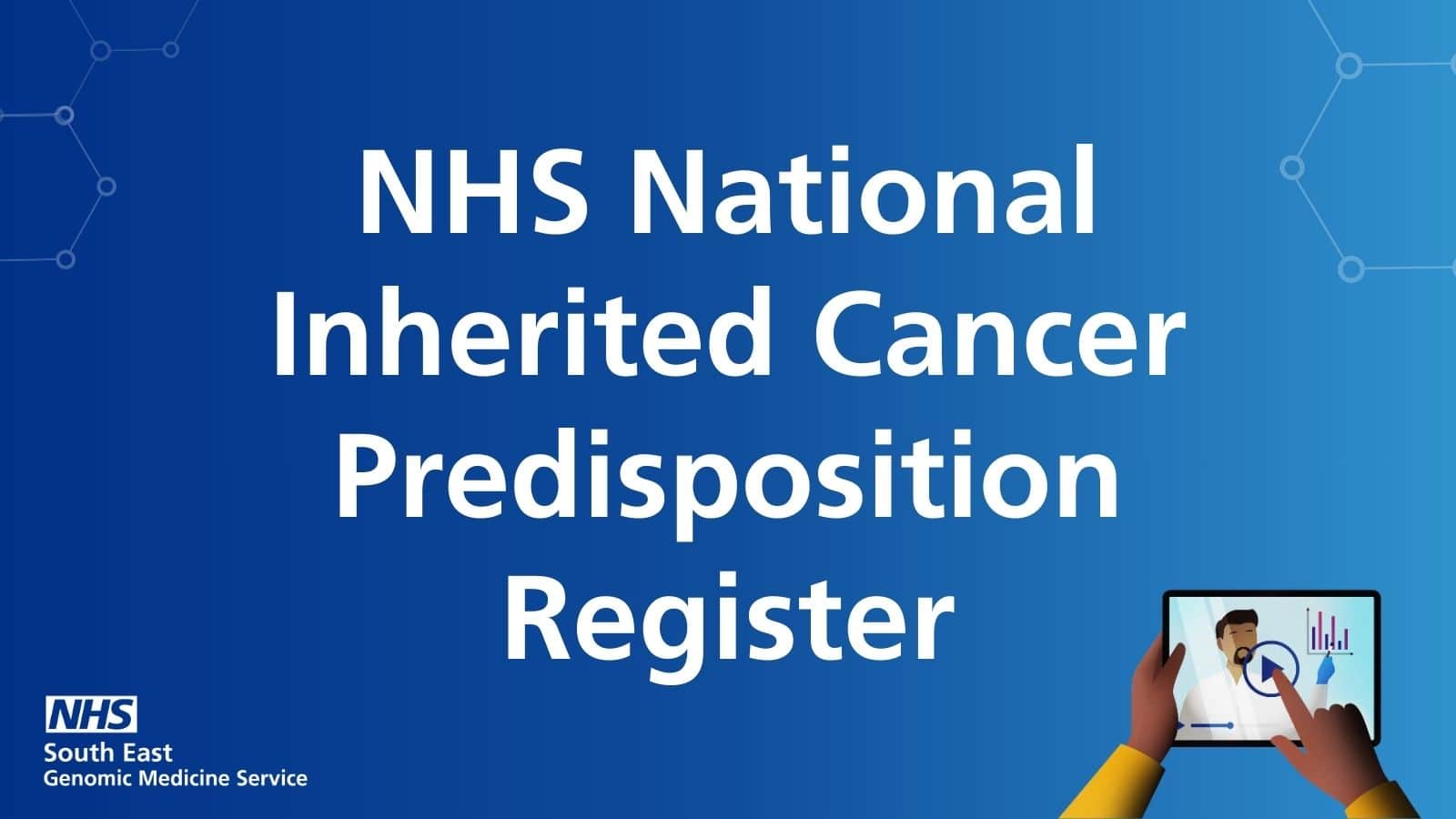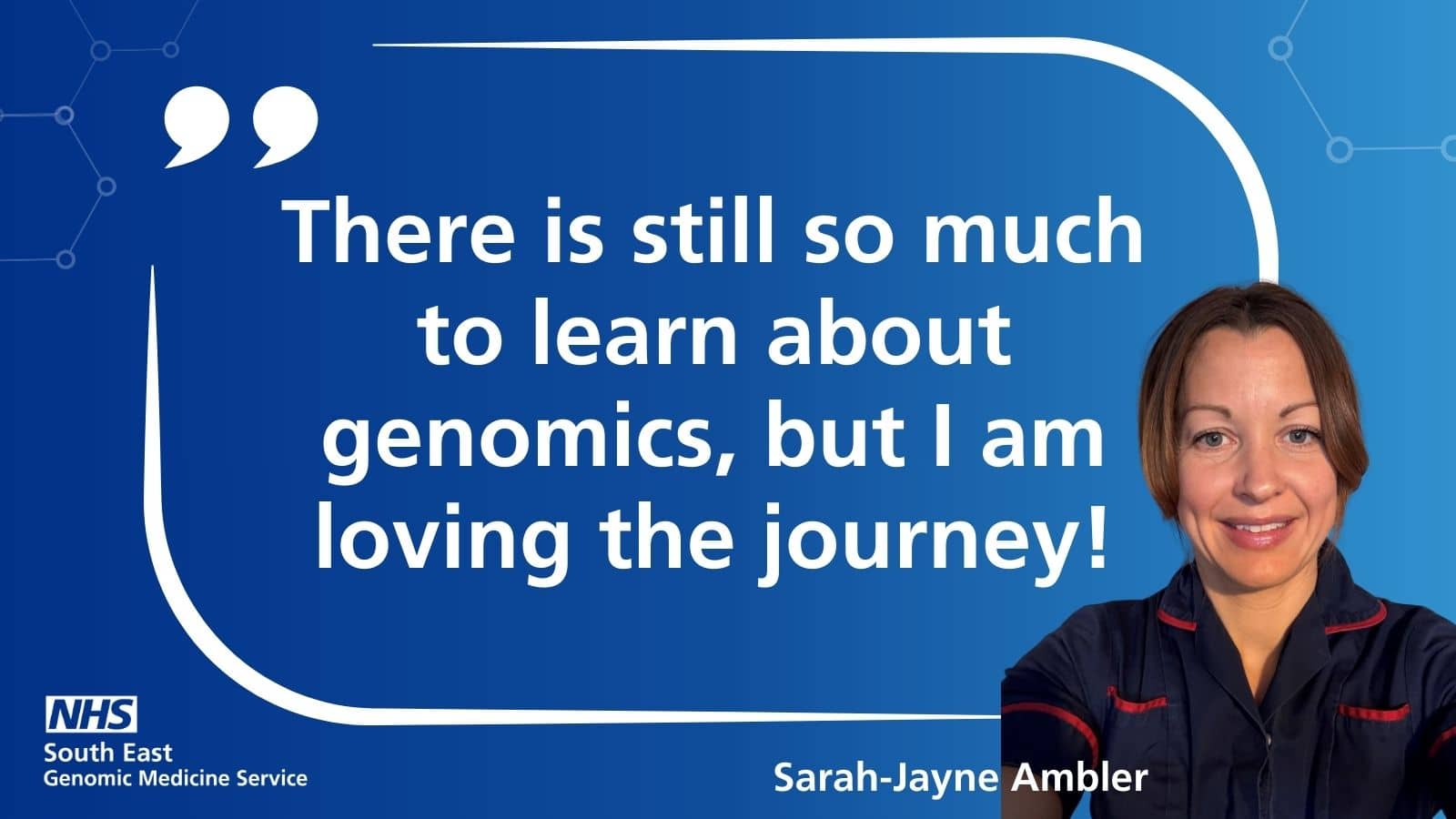Meet Mark, one of our Genomics Ambassadors for Nursing

‘I started to learn about genomics on YouTube.’
Mark is a Neurogenetics Clinical Nurse Specialist (CNS) at St George’s Hospital in London. He’s also a Genomic Nursing Ambassador, and he’s shared with us his journey into genomics and mainstreaming work.
Prior to working in the UK, Mark practiced as a nurse in the Philippines.
‘I remember my very first case as a registered nurse. The child had a rare condition called foetal hydrops. Unfortunately, we lost the baby, but it was a learning curve for us all.’
Mark had only read these cases in textbooks, but seeing it for his own eyes made him realise that genetic diseases were much more common than he thought.
Fast forward to 2016 when Mark was working as a research nurse at St Georges Hospital, one of the principal investigators on rare genetic diseases handed him a research paper to read.
‘It struck me right away as it described the same symptoms as the first patient I ever saw in the Philippines. That really inspired me, and from then on I made a conscious effort to learn more about genomics and rare diseases.’
This marked the beginning of his genomic journey and led him to go on and study a Master’s degree in Genomic Medicine.
‘I thought I wasn’t smart enough for a Masters in Genomics, but I really enjoyed it, especially the bioinformatics and rare disease modules where I got top marks!’
Mark’s focus now has been working on mainstreaming genomic testing amongst those suspected of neurogenetic diseases. The main objective is to improve equity of access to genomic testing, care coordination, and access to clinical research.
‘We have streamlined that pathway now.’
It works as a partnership with the consultants. The neurologist phenotypes the patient and Mark facilitates genomic counselling and testing right away. Once a genetic report is available, it is returned to the neurologist to make timely decisions on the patient’s care and provide a better prognosis. As a neurogenetics CNS, Mark liaises with multiple teams to support their care after diagnosis and flagging them to the appropriate services to be seen in a coordinated manner.
‘It has had an immediate impact on patient care. As soon as the genetic report is received, we can tailor the patient’s care and, if available, start treatments quicker.’
In addition to his mainstreaming work, Mark has also been involved in upskilling NHS staff to know more about genomics and how it affects patient care. In particular, he has been supporting resident neurology doctors to order genetic tests and basic genetic counselling. He also teaches nurses so that they can help facilitate genomic testing in acute wards and infusion day units.
‘As a team, we learn from the cases we encounter in clinic. I sign-post staff members to short courses to improve their knowledge. Some have even been inspired to take up genomic modules!’
Going forward, Mark’s focus has been on the application of novel genomic technologies in neurology to support clinical diagnosis.
‘For those who are admitted to acute wards or in the ICU, there is a real need to speed up and provide timely results to support the clinical team’s decision making. Waiting for results can cause unintended stress to patients, families, and healthcare professionals.’
Mark hopes that with technological improvements, patients with neurological conditions could get a quicker diagnosis and receive accurate prognosis. Mark is excited about the role of genomics in developing novel and personalised treatments.
‘We might not be able to make magic drugs for all diseases, and we still have so much to learn. However, I believe genomics has so much untapped potential in helping us develop new treatments.’
Mark shared his advice for others who may be eager to learn more about genomics but are finding it daunting to begin with.

‘Start small, keep it simple, and build up your knowledge. Find what works for you: it could be listening to podcasts; reading books; or watching TikTok.’
Mark is now confident in speaking with patients and answering their questions about genomics, so he shared his top tips for others looking to do the same.
‘Keep it simple, match their language and put the jargon away. Let them talk first while you actively listen and then you can fill in the blanks. Finally, keep the conversation going.’
Are you inspired to become a genomic ambassador and want to join a community of like minded colleagues ?
Follow the link below to find out how you champion genomics in your trust!


